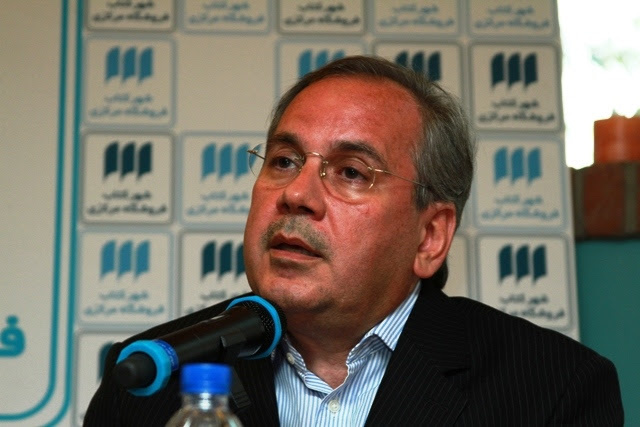Populists Don’t Care about Expert Opinions

Mahmood Sariolghalam, a professor of international relations at Shahid Beheshti University, said, “There is a secret and sometimes active layer of populism in the Iranian spirit and that is why Iranians are influenced by populism.”
Dr. Sariolghalam, who in his essays attempts to review and study the political culture of Iranians, started his speech at the Imam Musa Sadr Cultural Institute by saying, “The term populism, which is taken from populus, meaning the people, was born in Latin America.”
He then said that this term stands against rationalism, wisdom, elitism and expertism, “Populism is a type of trend. It means making decisions on the basis of events that have happened in the near past and future. Populism has nothing to do with the past and the future. Populism has nothing to do with reasoning and research; it is rather used to deceive people to satisfy them for the next few days.”
After describing the theoretical framework of the concept of populism, Sariolghalam then explained why he claims that “there is a secret and sometimes active layer of populism in the Iranian spirit and that is why Iranians are influenced by populism.”
He stated that, in Iran, populism has two historic roots, “First, economic poverty and second, cultural poverty. A study of the history of communists in Iran reveals that many of them had come from poor families who lived in remote areas of the country and were dissatisfied with the social situations where there were numerous vacuums. That is why communism in Iran cannot be compared to the communism in, for example, Hungary.”
He further added, “In the book entitled “Authoritarianism in the Qajar Era”, I reached the conclusion that the problem of us Iranians is not that we have different opinions because it is not difficult to accept that different views exist in a country with an ancient history. But the main issue is individualism which is caused by the reflection of authoritarianism and our monarchial history in the Iranian spirit and is rooted in the Iranian personality. That is why Iranians cannot interact with each other. This is while in a country like China, people easily interact with each other and in the end, based on the pyramid of party or family or social, incline towards a united opinion and act upon that. But in our Iranian culture, we move apart from each other as soon as there is a difference of opinion between us.”
Sariolghalam mentioned the recent experience of the Iranians in explaining populism and said, “Populism means that the people receive little money and are satisfied for one month. The populists gain political concessions with this method and no one asks whether this method is logical or not. It means that instead of making reforms in the work atmosphere and the tax system and establishment of reasonable international relations, it pursues what people are wrongly after. The result creates numerous problems for the society.”
He reiterates the point that, “We must differentiate between wisdom and intelligence. Iranians are among the best in the area of educational intelligence, but they are very weak in social wisdom. The social intelligence of Iranians is a populist one. When two people have a car accident, everybody gathers around them and gives their expert opinions! Social intelligence means understanding the issue of when a person has the right to express his opinion and when he does not.”
Sariolghalam then stated that there is a difference between populism and respecting the people: “Imam Musa Sadr was concerned about the people, he respected them and made plans for their problems and attempted to untie the many knots in people’s lives. He visited many places to find the necessary resources but when he had to make plans, he consulted with the best advisers.”
He further stated, “This is the border between populism and respecting the people. Those who were close to him say that he received numerous consultations about any decision that he was going to make. This is while the populists do not care about the universities and the elites and expert opinions.”
Dr. Mahmood Sariolghalam is an advisor to the President of the Islamic Republic of Iran and a researcher in the area of development, political science, and Iran’s contemporary history. He is a full professor of political science of Shahid Beheshti University and an author of numerous books.

